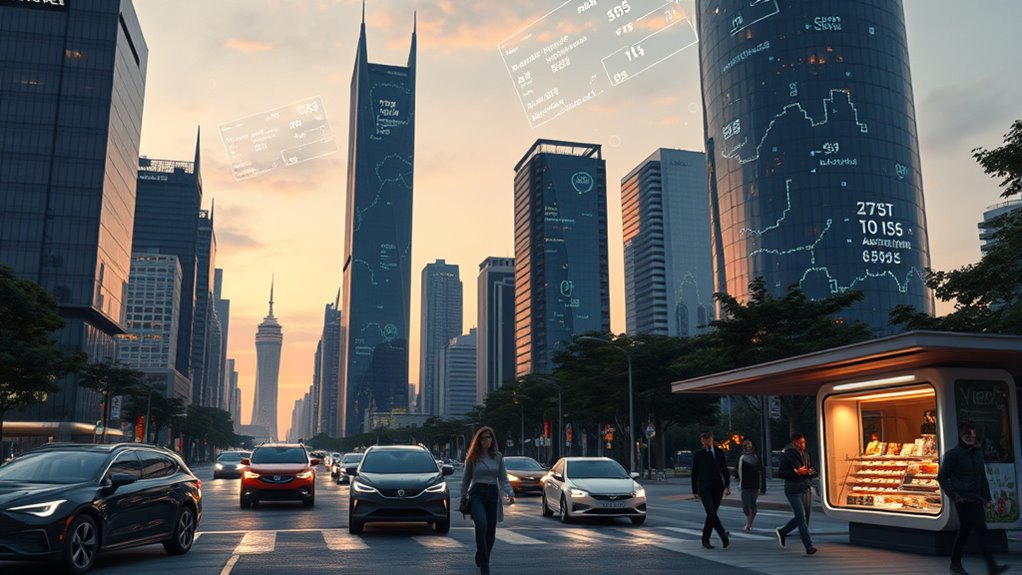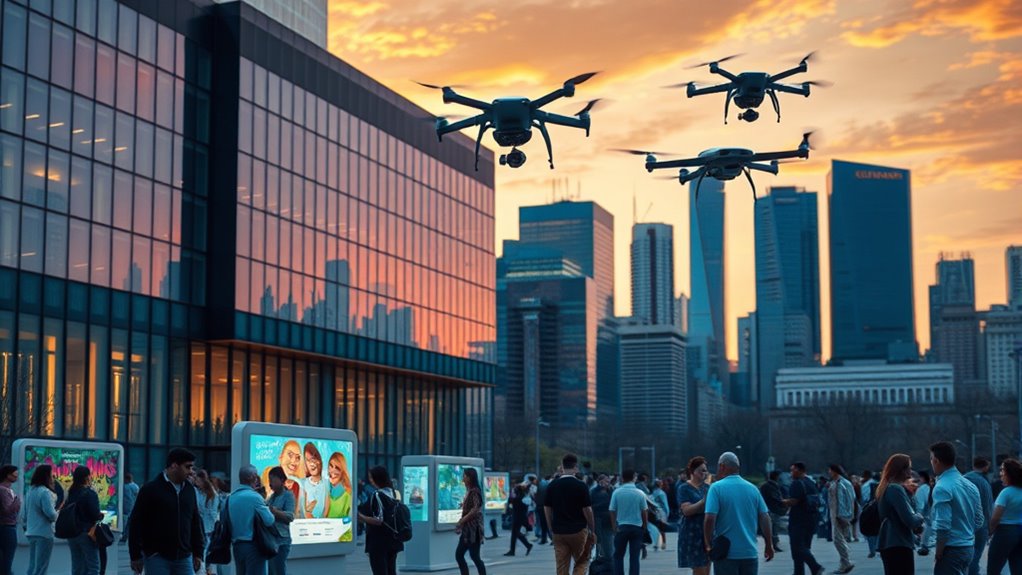Navigating the future of work involves choosing between basic income and job guarantees, but which path truly offers the most promise for society’s post-work world?
Browsing Category
Post-Labor Economics
79 posts
Human Purpose in the Post-Work Era: Finding Meaning Beyond Careers
Merging personal passions with societal impact, human purpose in the post-work era invites us to explore meaningful fulfillment beyond traditional careers.
The Transition Trap: Avoiding Upheaval as Jobs Disappear
Struggling with job displacement? Staying strategic and adaptable can help you navigate the transition trap successfully—discover how to turn upheaval into opportunity.
Global Perspectives: How Economies Are Bracing for Automation
Overall strategies worldwide are shaping the future of work, but the full impact of automation remains to be seen.
From Labor Income to Capital Income: Earning a Living in 2040
In 2040, you’ll find that earning a living shifts from traditional jobs…
Abundance or Scarcity? Resource Allocation When AI Does the Work
Nothing is more crucial than understanding how strategic resource allocation can determine whether AI leads us to abundance or scarcity—are we prepared to shape the future?
The Role of Government in a Post-Employment Economy
Most governments must adapt innovative policies to navigate the challenges of a post-employment economy, but the key strategies remain to be explored.
Lessons From History: What Past Automation Waves Tell Us About the Future
Just as past automation waves reveal, understanding history can help us navigate the future’s technological shifts effectively.
Techno-Optimist Vs Techno-Pessimist: Two Views of the Automated Future
Just as optimism and pessimism clash over automation’s impact, understanding these viewpoints reveals crucial insights into our future—so keep reading.
Post-Labor Economics 101: How an Economy Might Work Without Jobs
Discover how a post-labor economy could function without traditional jobs and why understanding this shift is crucial for the future.













